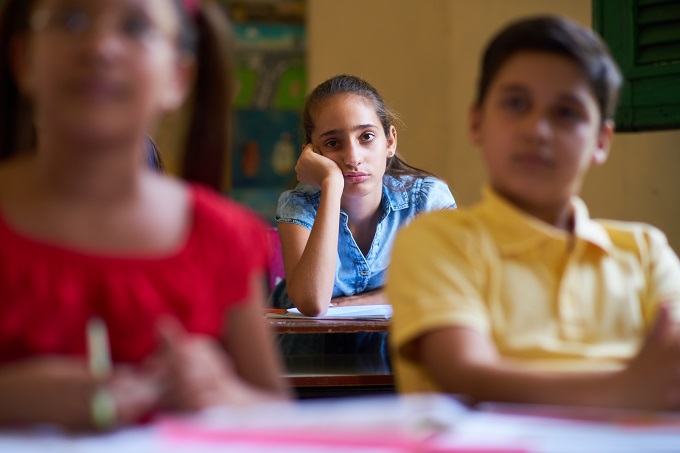NewsEducationHealth & SafetyIndustry VoicesOp-edAdministration
Managing mental health in primary vs. secondary students

Final school exams, transition to high school, end of year burnout – all stress can be managed with simple techniques to promote life-long strategies for children
Finding ways to cope with times of stress is a vital life skill for children of all ages but many parents and teachers worry about how to help the children in their care manage their mental health.
Across the pond, not-for-profit mental health service Interrelate shared some different suggestions for managing stress in children and teenagers that could prove handy in any school setting…
PRIMARY: 6 ways to manage stress in younger children:
- Breathing exercises– deep inhale followed by a deep exhale. This gets rid of the body’s build-up of cortisol (the stress hormone) and is an instant calm. Make it into a regular game and watch kids start to self-manage this exercise when they feel stressed!
- Play a ‘my favourite place’game and get everyone to close their eyes and imagine they’re in their favourite place. Make sure everyone is hearing and seeing and feeling everything around them. Just five minutes is enough!
- Create afree-play art sessionwhere the children get to express exactly what they’re feeling right now – no judgements (options 1 -3 make a great combined exercise!)
- Use music as a stress reliever,either to calm combined with quiet closed-eyes time, or to create an upbeat, happy, dancing around the room exercise
- Embrace the therapeutic effect of blowing bubbles(this works for kids of any age – including the grown-ups!). The deep breath exercise of blowing the bubbles combined with the distraction of the bubbles is an instant stress reducer
- Get outside inthe fresh air– rain, hail or shine! Movement and activity outside provide an instant stress relief. Combined with a discovery or learning exercise allows the brain to forget about stressful thoughts
SECONDARY: Prompts for managing stress and self-care in teenagers:
- How’s your food and sleep? Sounds simple but, some healthy nourishment and a good night’s sleep will always make you feel better
- Take a deep breath, breathe it out and repeat. This simple exercise that you can do anywhere, anytime, reduces the cortisol in your body and helps replace it with the happy hormones (especially good right before an exam!)
- What’s your favourite place in the world? The beach, your friend’s back yard pool? Close your eyes for five minutes and take yourself there and imagine all the sights and sounds that make it the best place to be. Feel better?!
- Be prepared. Obvious right? But, we often spend time worrying instead of preparing. No matter the situation, an exam, an assessment, an interview, a new job, block out some time to prepare and you’ll instantly stop worrying because you’ve filled your brain with knowledge
- Hang out with your family, no seriously! Get together at dinner, talk about the day, have some banter and remind yourself that these guys have your back
- Get into your flow. Whether you’re the sporty, arty, crafty or musical type. What’s that thing that takes you somewhere else? The mental distraction and physical distraction helps clear your mind and promotes a better night’s sleep
- If you’re struggling with something please talk to a trusted adult, whether that’s a parent, teacher, family member or friend. Even if you think it’s not their area of expertise they’ll know how to help
One of the best ways for adults to help children navigate through change is to be present and available. By using simple techniques that can be implemented anywhere and at any time, teachers can help to set up life-long coping mechanisms in children that can help them through stressful situations and retain a healthy outlook on life.









